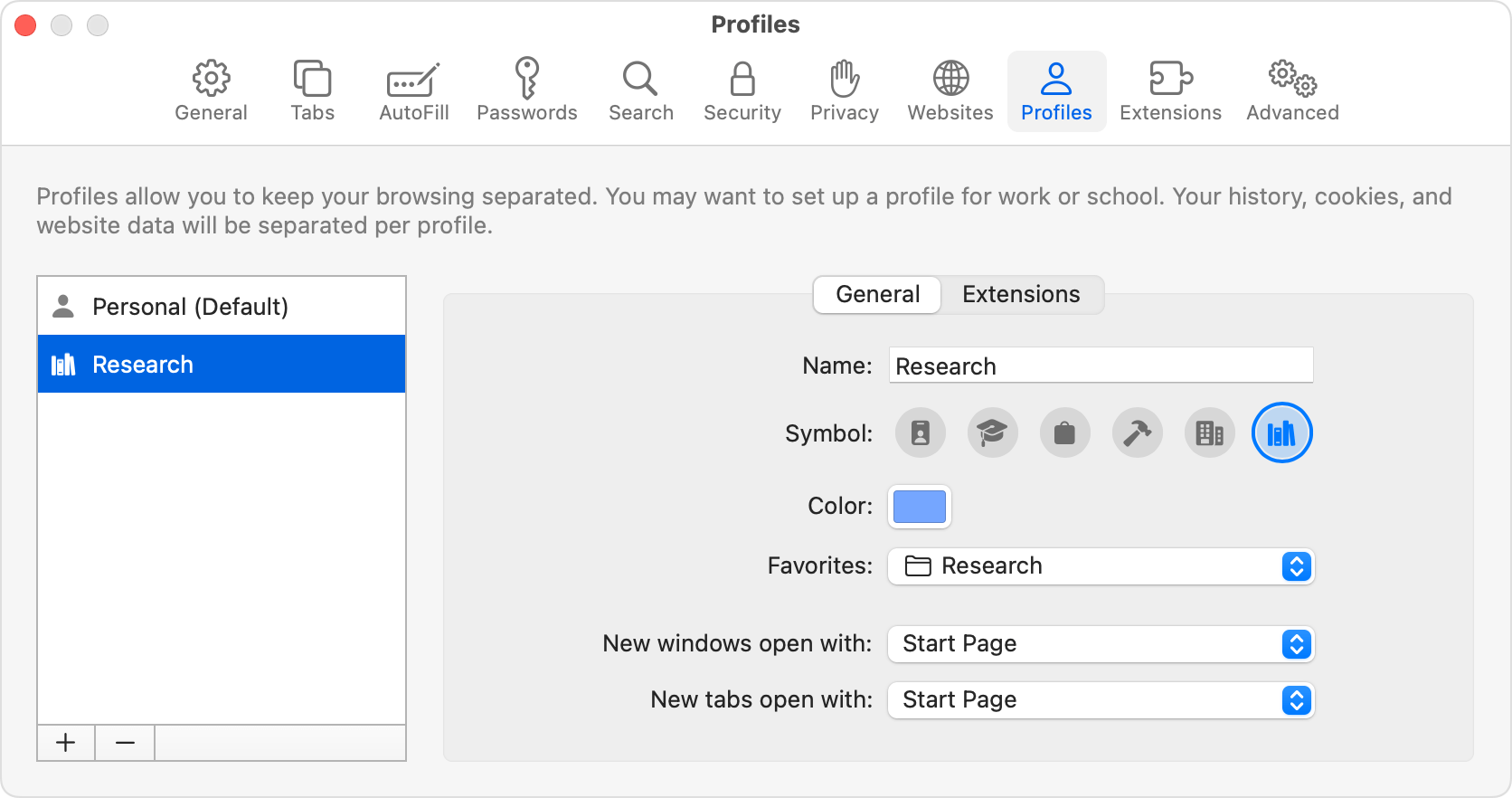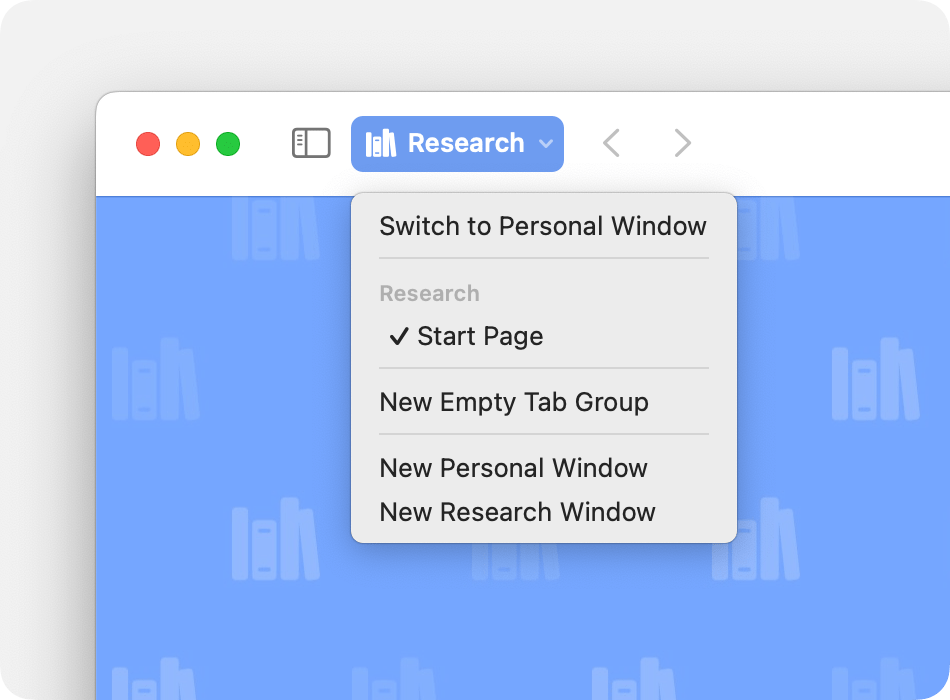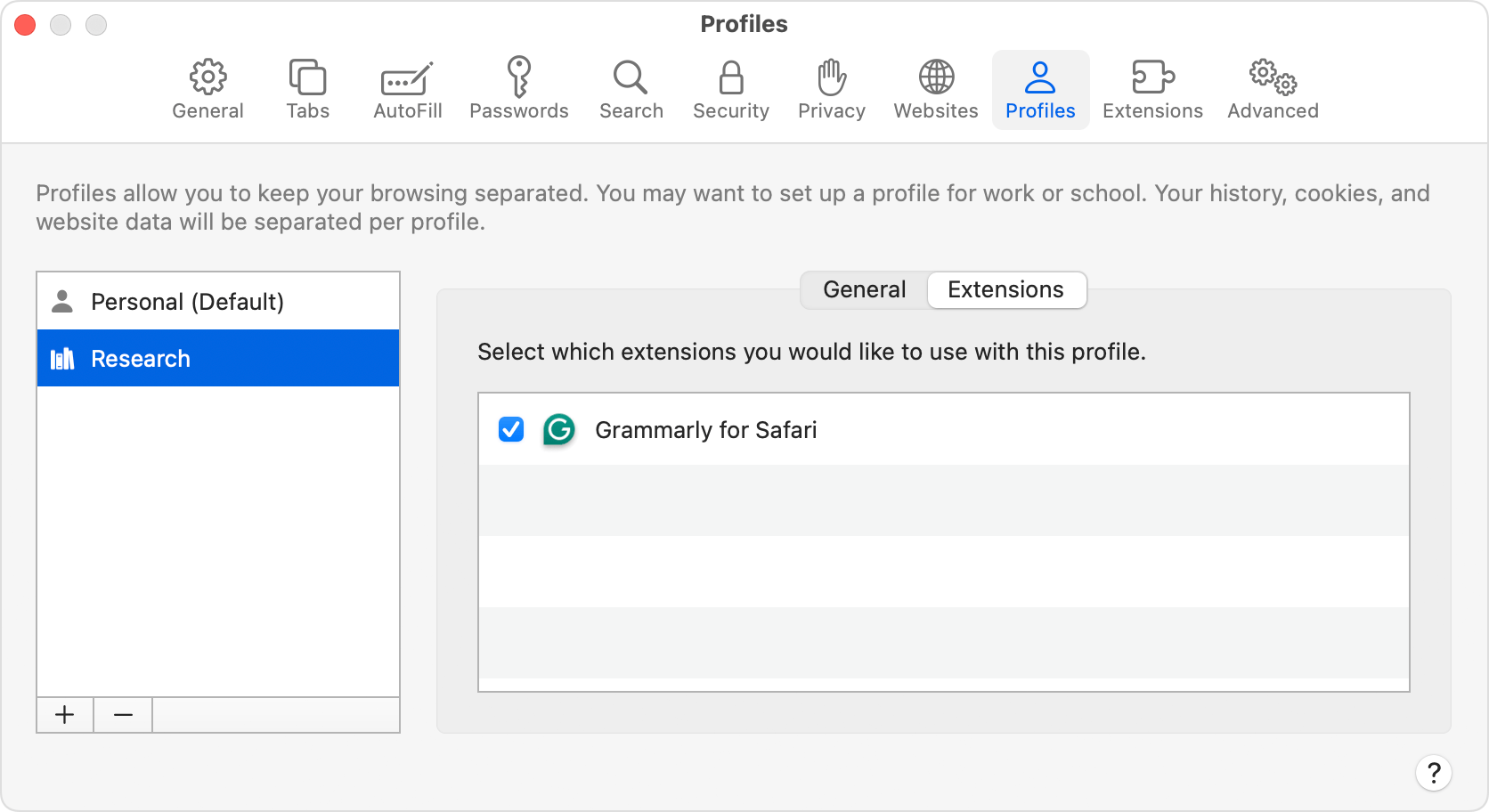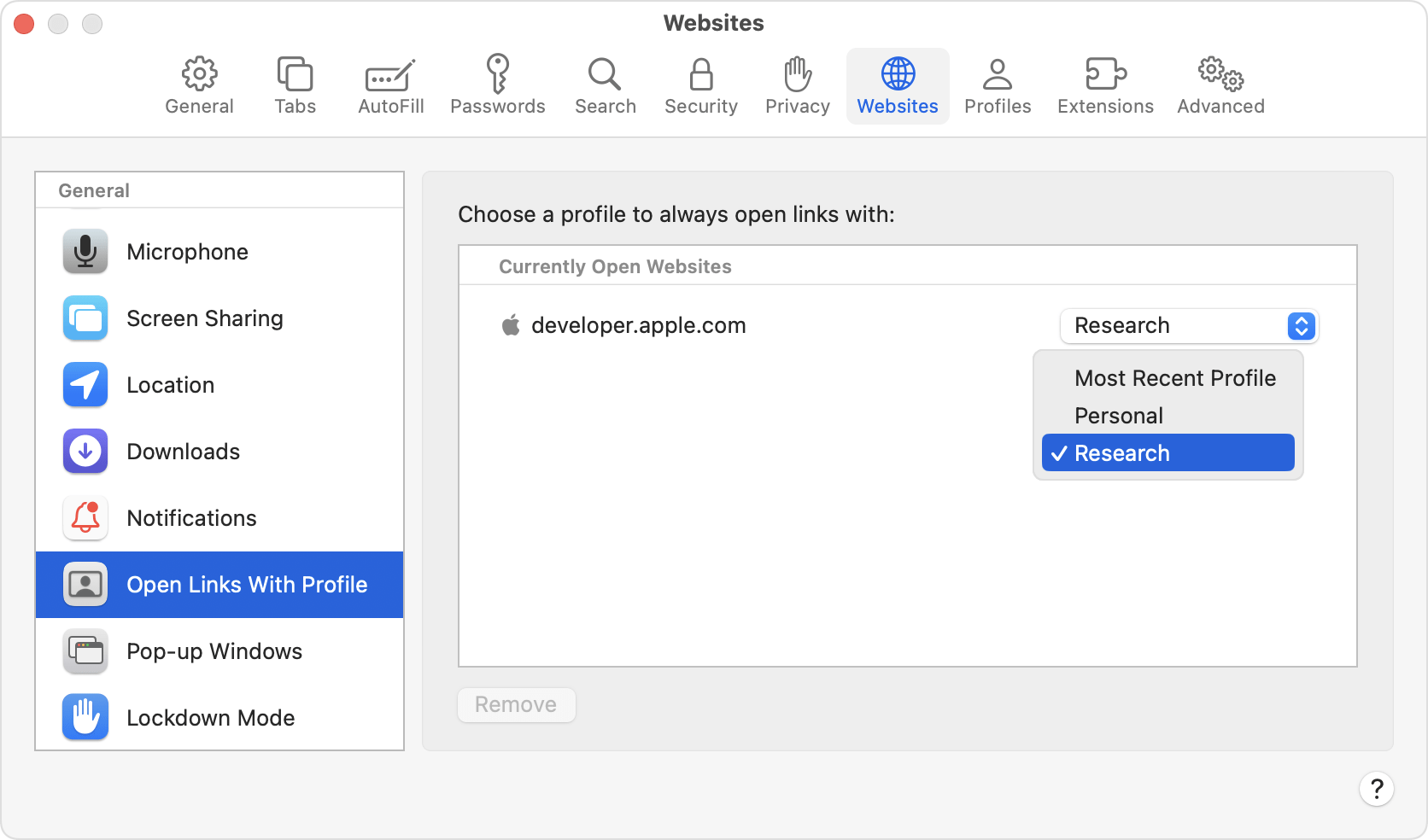Use profiles in Safari on Mac
Starting with Safari 17, you can use profiles to keep your browsing separate for topics such as work, personal or school. Each profile has separate history, cookies, website data, extensions, Tab Groups and favourites.
Create a profile
Requires Safari 17 or later*
When you create your first profile, your current history, cookies, website data, extensions, Tab Groups and favourites will become part of the default profile, named Personal. Profiles you create are in addition to this default profile.
From the menu bar in Safari, choose Safari > Create Profile. Or choose Safari > Settings, then click Profiles.
Click Start Using Profiles. Then set up your new profile:
Name: the name will appear in the new Safari toolbar button for this profile.
Symbol: the symbol will appear in the Safari toolbar button for this profile, and in the default background of the profile’s start page.
Colour: the colour will appear in the Safari toolbar button for this profile, and in the default background of the profile’s start page.
Favourites: if you choose “Create new bookmarks folder”, the new folder will have the same name as this profile. Bookmarks saved to the favourites folder will appear in the Favourites bar for this profile.
Click Create Profile. By default, Safari will open new windows and new tabs to your start page.

Switch between profiles
After you’ve created a profile, the Safari toolbar will display a button with the name, symbol and colour of the currently used profile or Tab Group. Click the button to open a menu, then choose:
New [Profile] Window: opens a new window in that profile. You can also open a new profile window from the menu bar: Choose File > New [Profile] Window.
Switch to [Profile] Window: switches to another profile without opening a new window. To keep your browsing history separate, this option is only available from a window displaying your start page or an empty page – before you visit another page.

If you use Focus, you can add a Focus filter that will switch to a specific Safari profile automatically whenever you use that Focus. Find out more about setting up Focus. When adding a Focus filter, choose the Safari filter, then set the Filter Type to Profile and choose the profile you want use.
Find out how profiles keep browsing separate
Some Safari features and settings are shared between profiles, including AutoFill information, Passwords information, Security settings, Websites settings and Privacy settings. Others are not shared, or behave differently.
Bookmarks
Bookmarks, including favourites, are available to all profiles via the Bookmarks menu or . But the Favourites bar, which you can show or hide from the View menu, is shared differently:
The Favourites bar is only shared between profiles that are set up to use the same favourites folder.
Private browsing windows only use the Favourites bar of the default profile.
History, cookies and other website data
Browsing history, cookies and other website data are not shared between profiles.
When you start using a new profile, websites won’t have the cookies or website data needed to remember you, so they may ask you to sign in again.
When you clear your history, you can clear all history or just the history of a selected profile.
Tab Groups
Tab Groups are not shared between profiles.
Start page settings
Start page settings, as well as the “New tabs open with” and “New windows open with” settings, are not shared between profiles.
Safari extensions
Safari extensions are available to all profiles, but are managed (turned on or off) separately.
Extensions for the default profile are managed in the main Extensions tab of Safari settings. For each extension you select in this tab, you can see which profiles are using them. You can also uninstall extensions for all profiles from this tab.
Extensions for other profiles are managed in the Profiles tab, which has its own Extensions tab for each profile. By default, extensions are turned off for each new profile.

Sync profiles between devices
Profiles sync automatically between all of your devices that are using Safari 17 or later, are signed in with the same Apple ID and have Safari turned on in the iCloud section of Apple ID settings.
Rename a profile
You can change the name, symbol and colour of any profile, including the default profile. But there can only be one default profile, and you can’t make another profile the default.
From the menu bar in Safari, choose Safari > Manage Profiles. Or choose Safari > Settings, then click Profiles.
Select a profile on the left.
In the Name field on the right, type a new name.
The renamed profile will continue using its existing favourites folder. For example, if you choose “Create new bookmarks folder” when creating a Research profile, the renamed profile will continue using the Research folder for favourites. If you want to rename that folder, view your bookmarks in the , then Control-click the Research folder and choose Rename from the shortcut menu.
Open links with profiles
By default, links from outside Safari will open in the profile used most recently. But you can make links to specific websites open in a specific profile. For example, you may want to open links to your company’s website in your Work profile, or open links to your school’s website in your School profile.
Go to the website you want to set up for this feature.
From the menu bar in Safari, choose Safari > Settings, then click Websites.
From the sidebar, select Open Links With Profiles. A list of open websites will appear on the right.
From the pop-up menu next to a website, choose the profile you want to use for that website.
This feature only works with links opened from outside Safari, such as links in Mail, Messages, the Finder or other apps. The link will open in the profile you’ve chosen for that website, unless the website is already open in another profile.

Delete a profile
When you delete a profile, all of its history, cookies and other website data will also be deleted. Favourites and other bookmarks will be kept.
From the menu bar in Safari, choose Safari > Manage Profiles. Or choose Safari > Settings, then click Profiles.
Select a profile on the left.
Click the Delete button (–) at the bottom of the list, then confirm the action when prompted.
You can’t delete your default profile. If you delete all other profiles, Safari will stop using Profiles.
* Safari 17 is included with macOS Sonoma or later and the latest macOS Ventura and macOS Monterey updates. It’s also included with iOS 17 or later for iPhone, and iPadOS 17 or later for iPad.